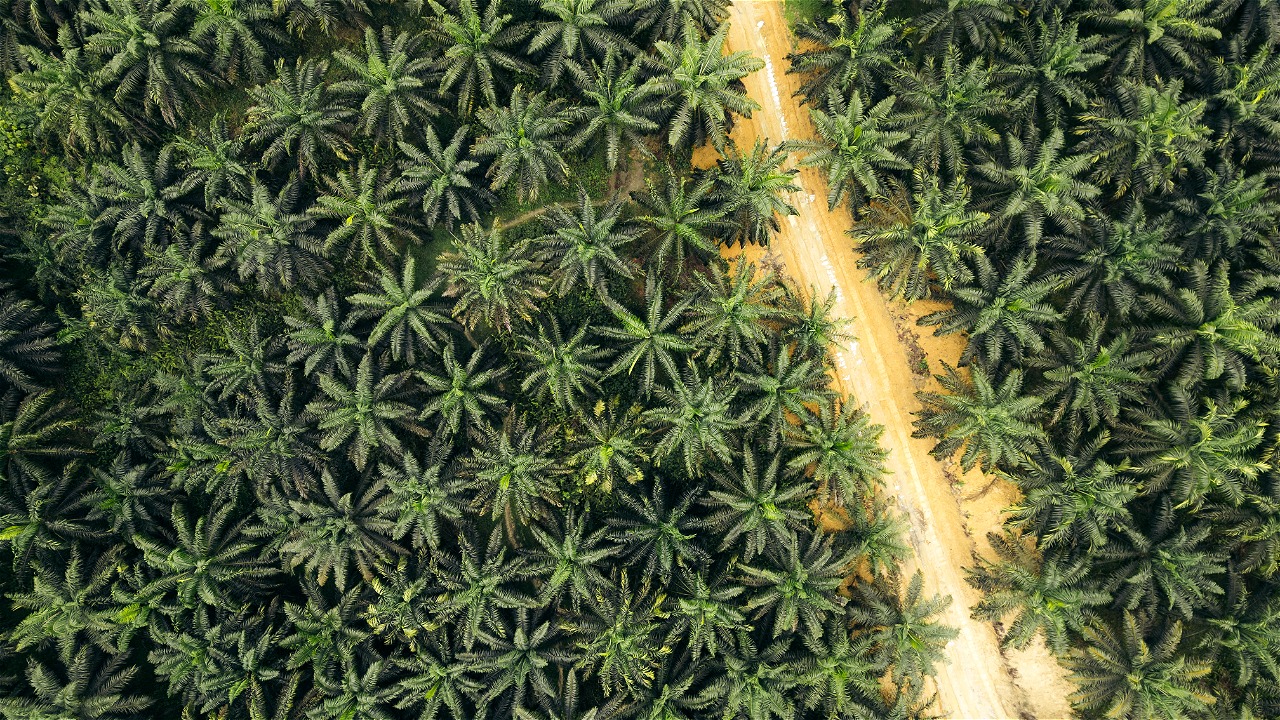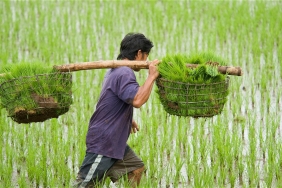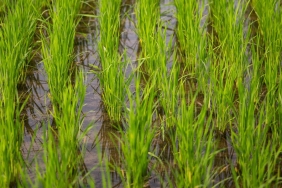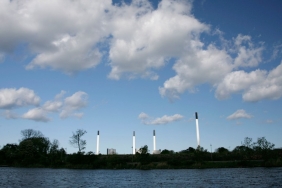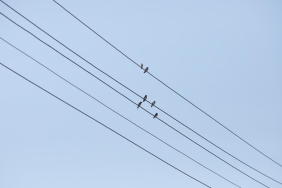THE SILENT ROAD OF SUSTAINABLE PALM OIL
Author: Maharddhika (Second winner of Writing Competition ""Sustainable Palm Oil, Wise Consumer Lifestyle""
Suratno Warsito was stunned when he encountered a horde of confused monkeys on his land. In his mind, he was upset.
Haphazard land clearing for oil palm has driven the monkeys from their home-the lush forests around Merarai Satu Village, Sungai Tebelian, Sintang, West Kalimantan. The total area under oil palm cultivation in Kalimantan has now reached 2.8 million hectares.
This threat is here to stay. The rate of forest destruction in Borneo (Borneo, Malaysia, and Brunei), is expected to leave only a quarter of the original area of forest cover if current trends continue.
Suratno and the independent oil palm farmers who joined the Rimba Harapan Cooperative took the initiative to reduce this rate of destruction by implementing sustainable palm oil practices. The man who is the head of the cooperative has given up three hectares of his land to become lush and form a tight canopy as a home for animals - including the monkeys he met earlier. An effort in the midst of the bad accusations that have been blamed on the palm oil industry.
Efforts from the heart of the world
Suratno's initiative was not short-lived. In 1996, a few years after he migrated, palm oil began to flourish in Kalimantan-the heart of the world. This commodity began to become the company's choice as a substitute for rubber, which was the main commodity at that time.
In 2004, Suratno began to think about clearing oil palm land. He finally decided to become an independent palm oil farmer by opening his own land in Merarai Satu. A year later, the development of independent oil palm farmers became more evenly distributed in Sintang Regency.
Unexpectedly, since the beginning, Suratno's palm oil practices have applied the concept of sustainability. For one, he did not clear land by burning - a method that has been cited as a major factor in the increase of forest fires in Indonesia over the past ten years.
It was only later that he learned that his practice was categorized as environmentally friendly after WWF-Indonesia and the Regional Facilitator of Sustainable Palm Oil (Fasda) introduced the concept of sustainable palm oil in 2013.
Suratno, together with two farmer groups, started the Rimba Harapan Cooperative-the first independent palm oil farmer cooperative, at least in Kalimantan, with the vision of realizing the welfare of members through the development of environmentally friendly and sustainable independent palm oil plantations.
Not only contained in the rules, this vision began to be internalized in the daily practice of oil palm plantations. Farmers are innovating by implementing intercropping around their palms that have entered the age of four years of planting. Vegetables and fruits make money first compared to oil palms that have not yet seen their harvest.
This practice is the biggest invisible success. It has created eco-sensitivity in the palm oil industry, which is said to be a major factor in deforestation. Independent smallholders are slowly changing the ugly face of the palm oil industry. It also proves the belief that the main problem of deforestation does not lie with palm oil, but how it is produced.
RSPO certification and sustainable palm oil
Suratno was amazed after a comparative study to Ukui, Riau. He and his friends returned to Sintang with a common determination: to emulate the Amanah Association, an association of independent oil palm farmers, which produces sustainable palm oil and achieved Roundtable of Sustainable Palm Oil (RSPO) certification.
Amanah Association, which consists of farmers in Ukui District, Riau, succeeded in becoming the first independent palm oil smallholder association in Indonesia and the second in the world to obtain RSPO certification on July 29, 2013.
RSPO has four main missions in transforming palm oil practices to a more sustainable direction. First, RSPO promotes the production, sourcing, and use of sustainable palm products. Second, RSPO develops, implements, verifies, assures and periodically reviews globally credible standards for the entire sustainable palm oil supply chain. Third, RSPO monitors and evaluates the economic, environmental and social impacts of sustainable palm oil uptake in the marketplace. Fourth, RSPO engages all stakeholders throughout the supply chain, including governments and consumers.
Referring to that mission, Amanah Association practices the set of environmental and social principles and criteria initiated by RSPO to produce palm oil with sustainable certification. For example, independent smallholders have begun to consider high conservation value (HCV) areas in clearing land.
This is done as a follow-up to the transfer of knowledge about the benefits obtained from the importance of protecting HCV in order to preserve the habitat and the plants and animals in it and maintain the ecosystem of the area so that it has a positive impact on the sustainability of the oil palm plantation business.
Thanks to this knowledge, farmers have become more attentive to the riverbanks within or around their plantations. Environmental factors have been taken into consideration by Amanah Association members in the expansion of oil palm plantations. Land expansion is only carried out to areas designated for plantations, not high conservation value areas or animal crossing areas.
At the RSPO annual meeting, two farmers who are members of the Rimba Harapan Cooperative were finally named RSPO facilitators for helping to initiate sustainable palm oil. They then received capacity building and spread sustainable palm oil in West Kalimantan.
Small efforts with big impact
A woman might never have thought that her beauty could reduce the rapid rate of forest destruction. From the choice of lipstick, soap, lotion and other cosmetics for her beauty, she can contribute to "cooling" the world.
There is a Roundtable of Sustainable Palm Oil (RSPO) label on products that use sustainable palm oil. This label signifies that the product has a minimum impact on the environment and is responsible because it is produced in a way that considers the preservation of habitats, lives, and natural resources.
WWF-Indonesia strives to #BeliYangBaik so that the public can play the role of wise consumers who consume environmentally friendly products, one of which is RSPO labeled products. The choice of consumption of these products will contribute to the improvement of palm oil that is more environmentally friendly.
Not only that, buying RSPO labeled products can also create a market for independent palm oil farmers who practice sustainable palm oil. This effort will break the chain of the palm oil industry controlled by large destructive companies. At the same time, the palm oil industry will shift to independent smallholders practicing sustainable palm oil. This will help improve the welfare of independent oil palm farmers.
RSPO certification is the chain that connects consumers with producers in the effort to create sustainable palm oil. Using RSPO-certified cosmetics is an equal contribution to the concept of sustainable palm oil practiced by independent smallholders.
This hand-in-hand effort must continue to be done to protect Indonesia's tropical forests. Forests that are home to humans; monkeys and twelve percent of other mammal species (including endangered species such as orangutans, Sumatran tigers, and rhinos); ten percent of the world's plant species; and seventeen percent of the world's known bird species.

